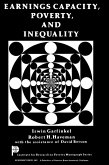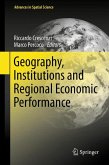In this Element, we investigate how economic geography, the distribution of subnational economic endowments within a nation, shapes long-run patterns of inequality through its impact on the development of fiscal capacity. We present an argument that links economic geography to capacity through different types of industrialization processes. We show how early industrializers shape spatial distributions domestically by investing in productivity across their nations, and externally by reinforcing spatial polarization among late industrializers. We also show how differences in economic geography impact the process of capacity building, setting the stage for the modern politics of redistribution discussed in Volume II. We support this argument with descriptive data, case studies, and cross-national analyses.
Dieser Download kann aus rechtlichen Gründen nur mit Rechnungsadresse in A, B, BG, CY, CZ, D, DK, EW, E, FIN, F, GR, HR, H, IRL, I, LT, L, LR, M, NL, PL, P, R, S, SLO, SK ausgeliefert werden.









